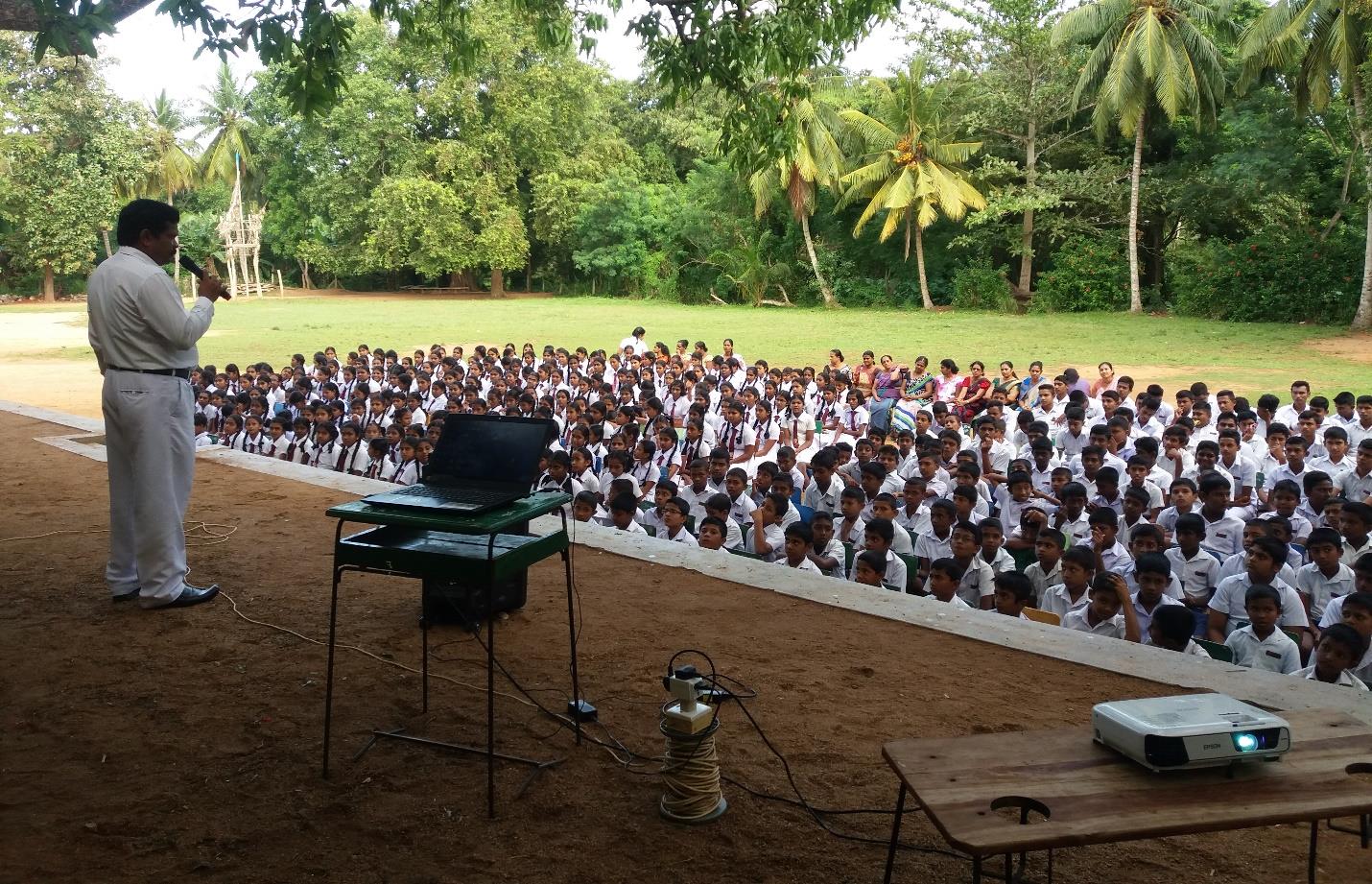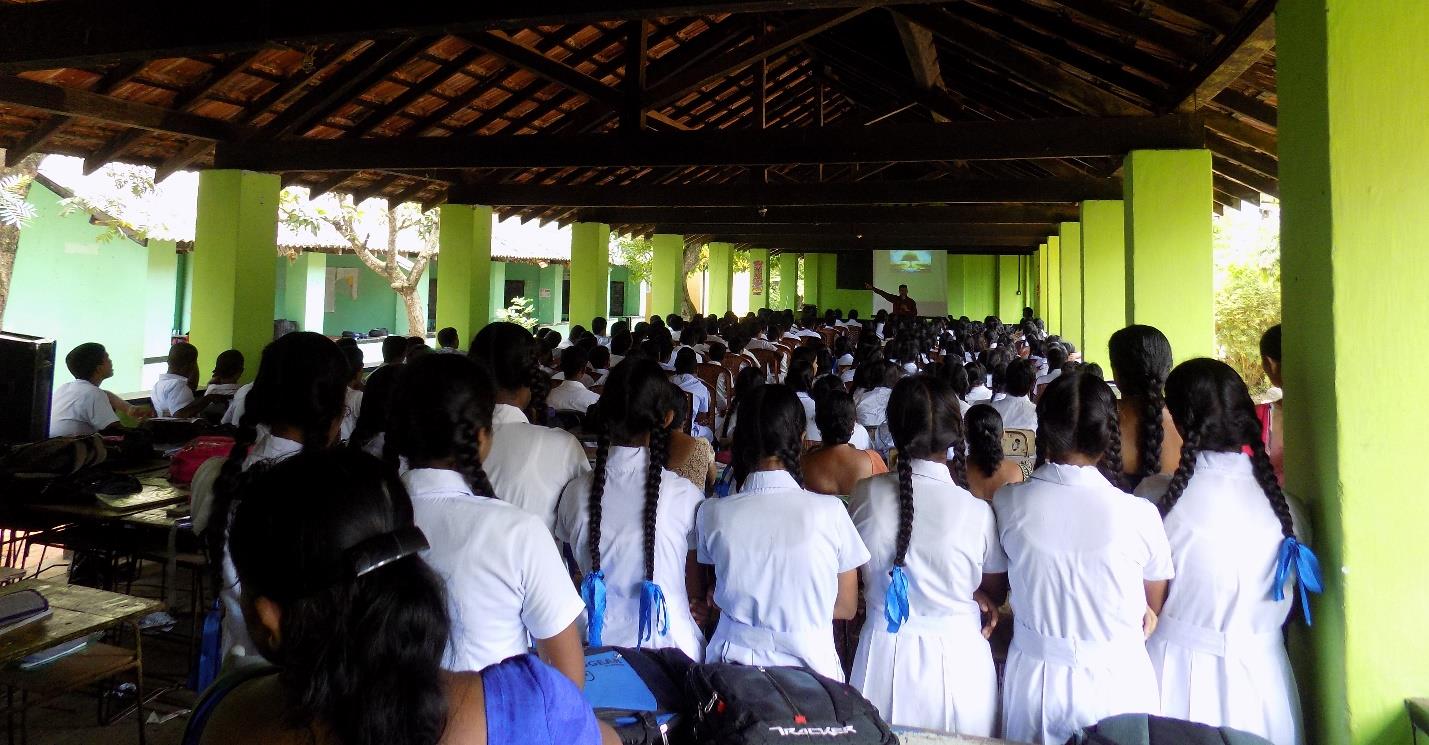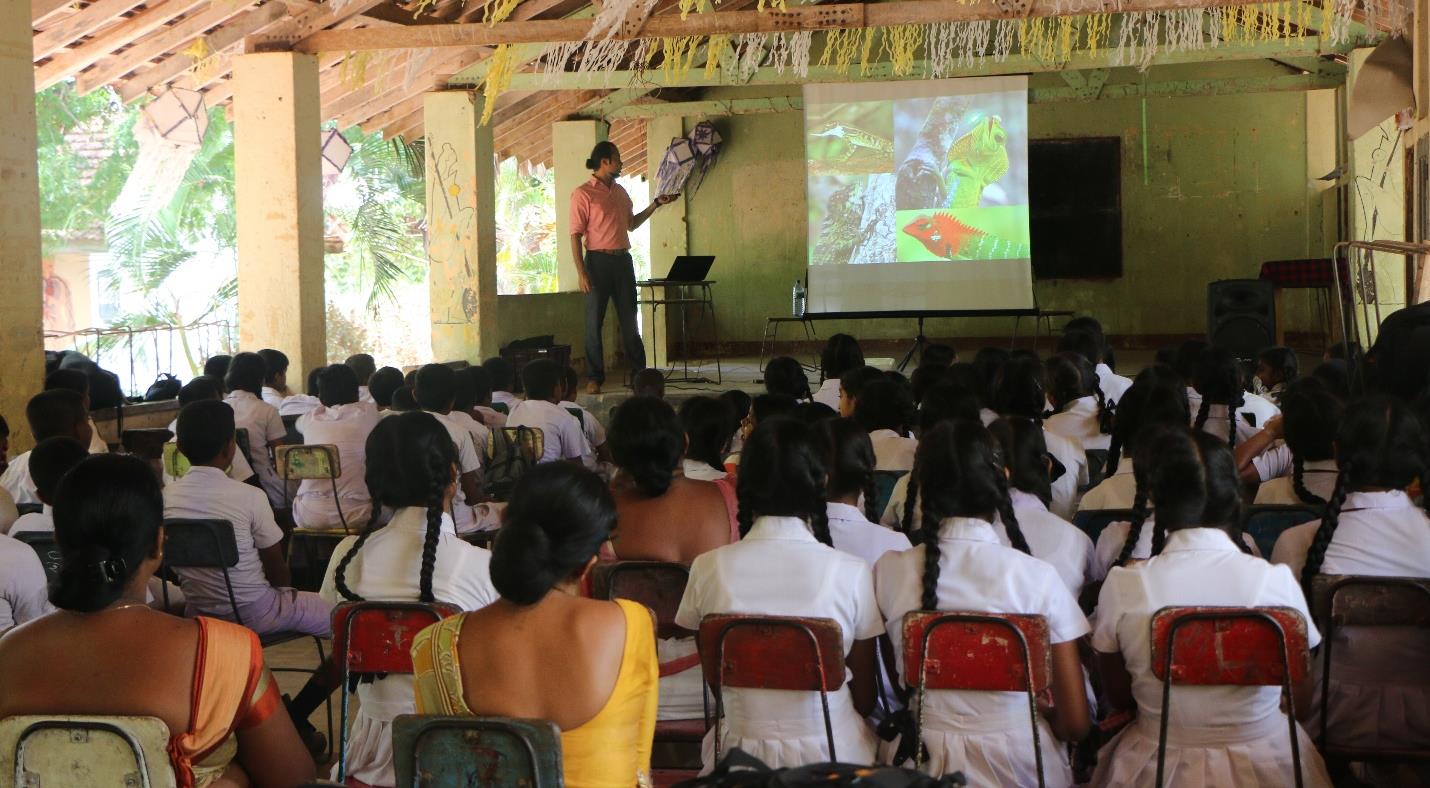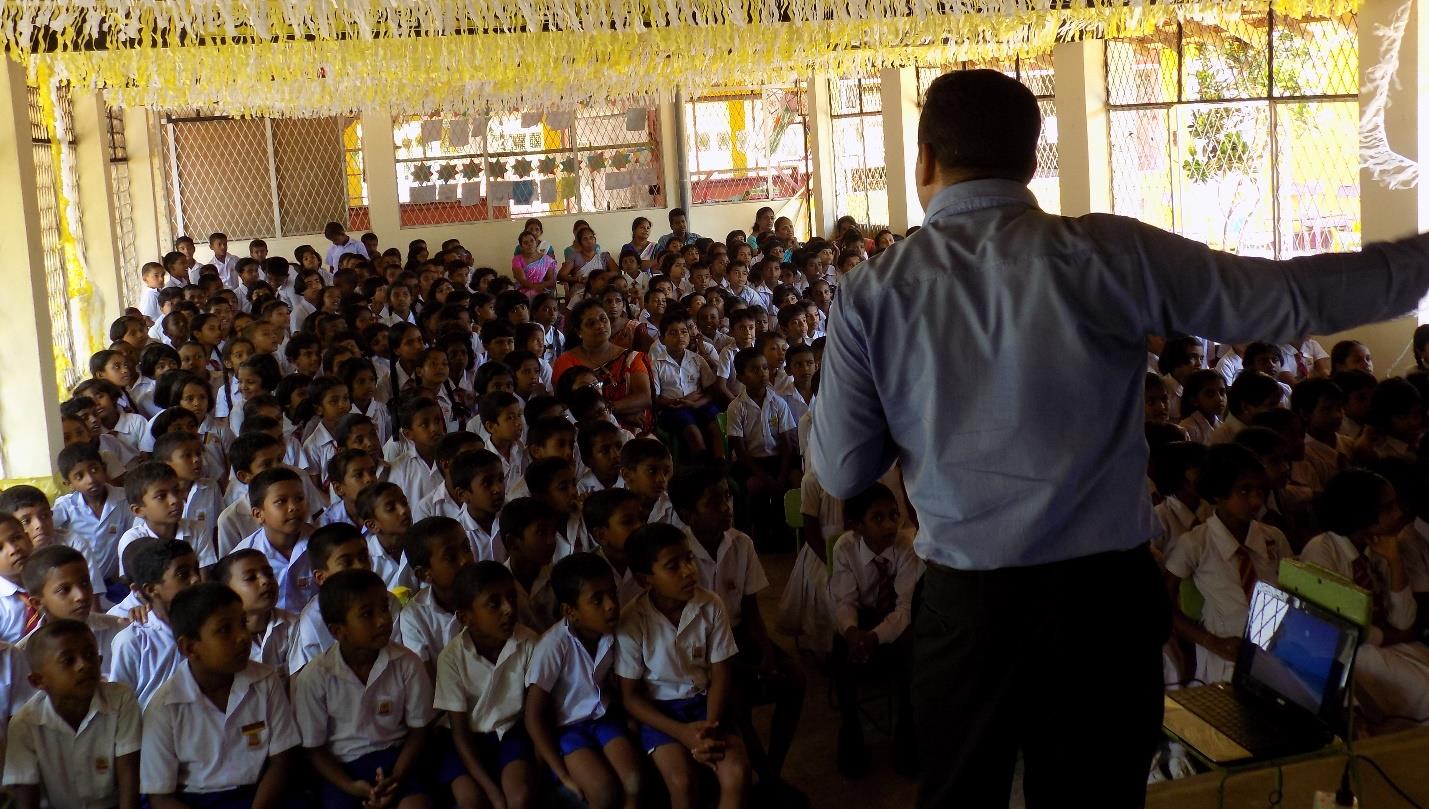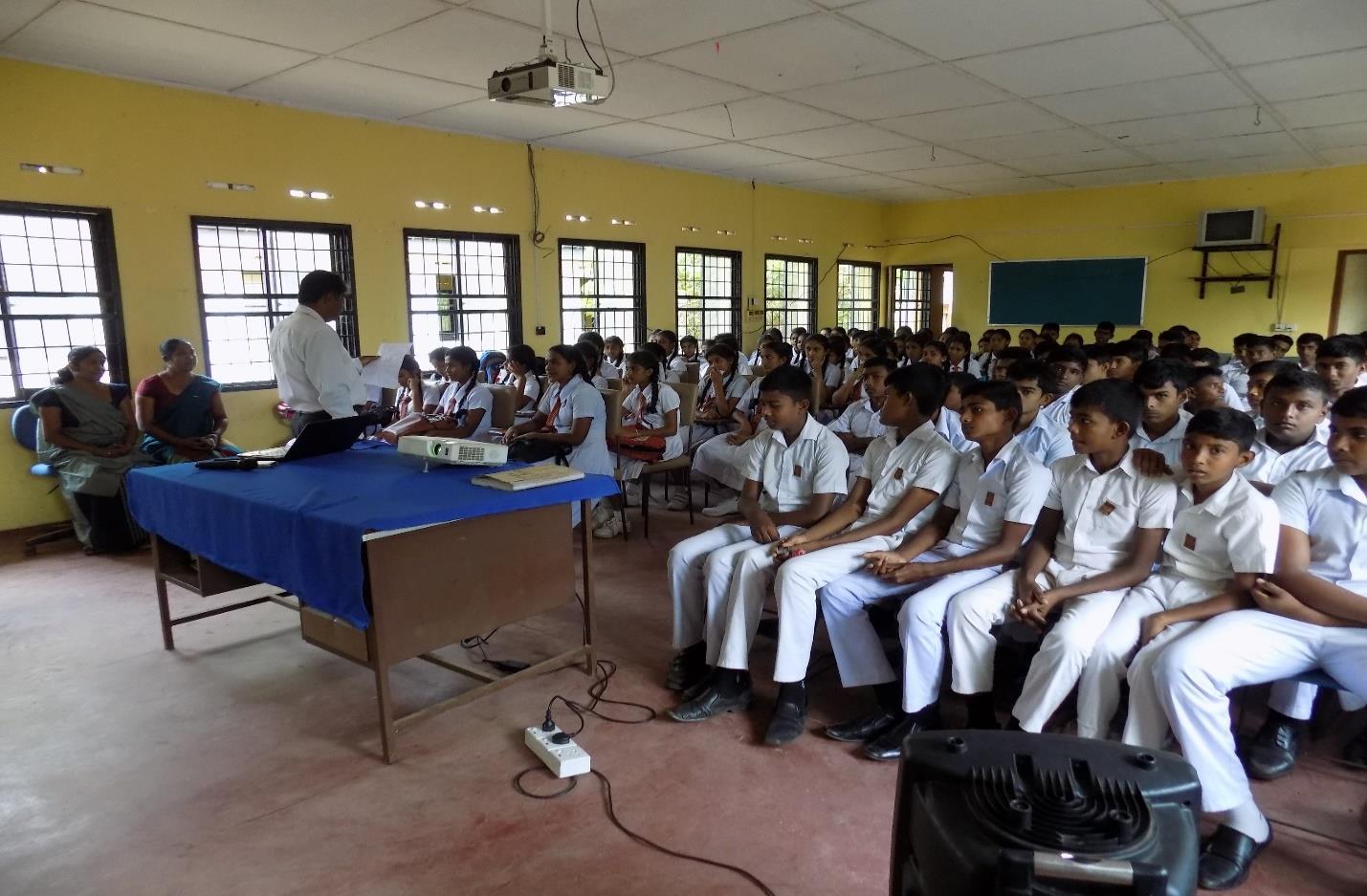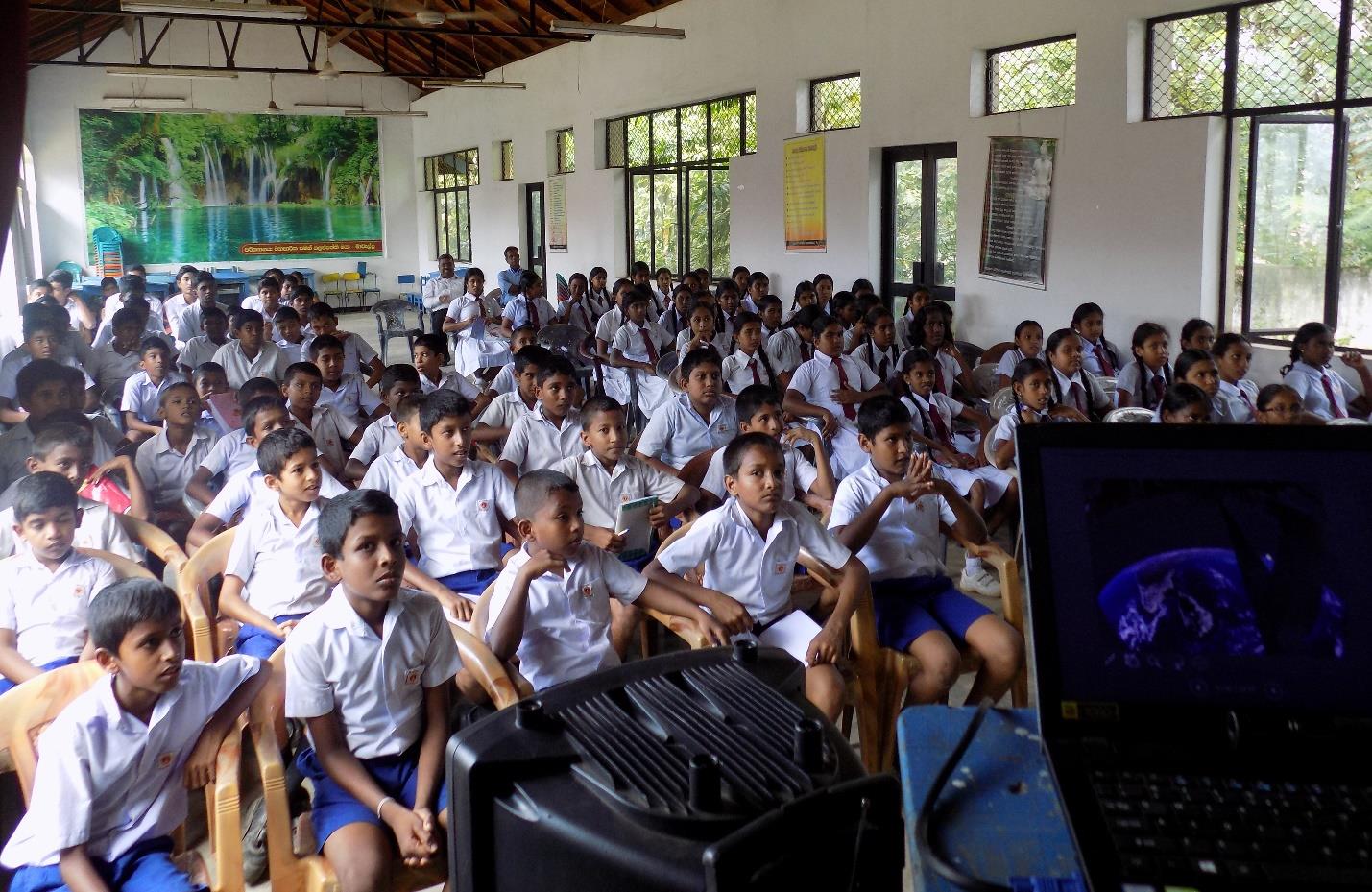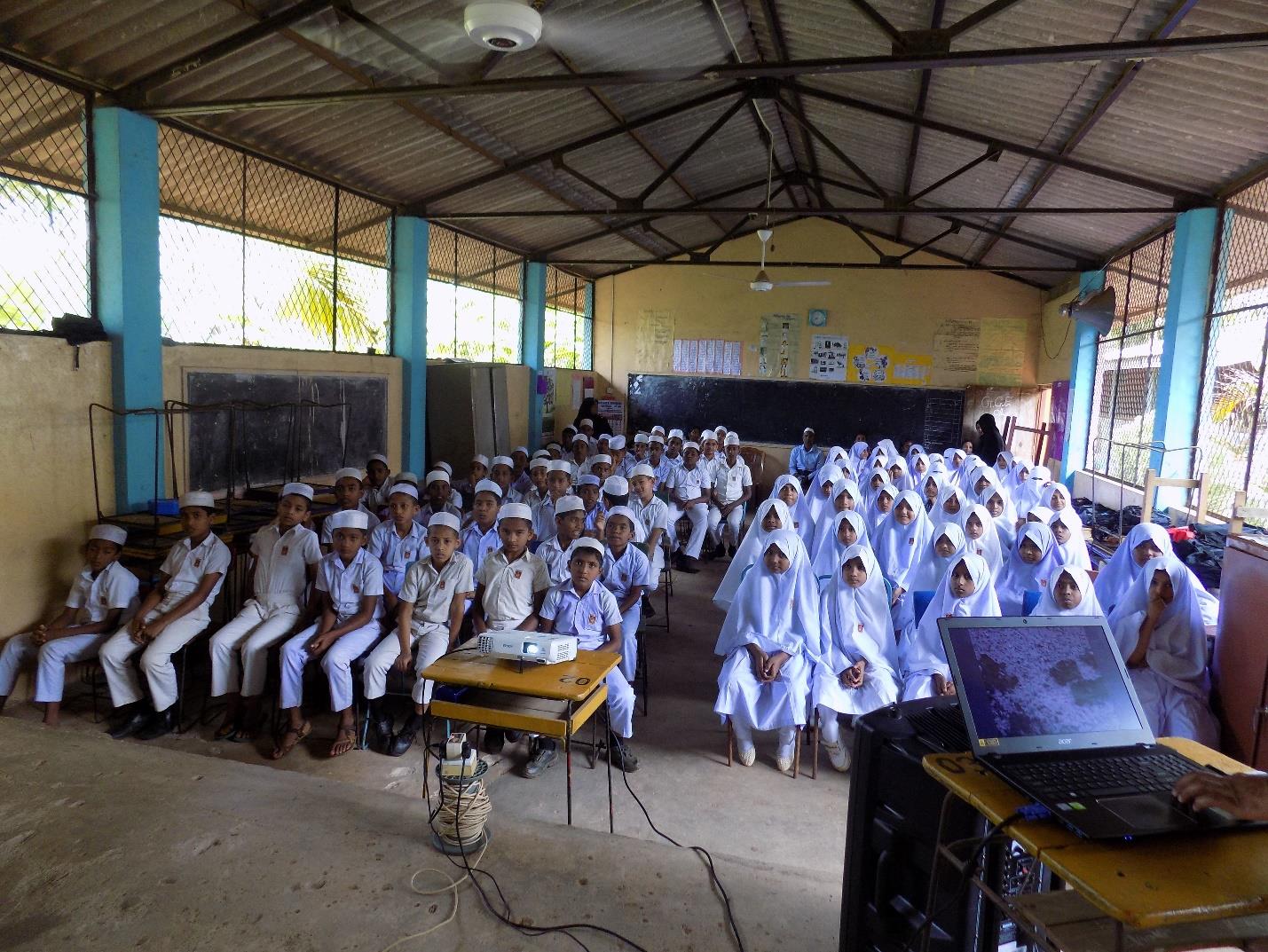1. Biodiversity & Elephant Conservation Trust (BECT)
The Biodiversity & Elephant Conservation Trust (BECT) was established in May 1998. BECT is a non-profit making, Non Governmental Organization. The Trust has been able to achieve much during the short period of its existence. BECT carries out many elephant conservation activities, mainly in Sri Lanka. We do studies on elephant behavior; carry out surveys on tame elephants; we have carried out a monitoring program on elephants returned to the wild; done electric fencing for elephant management and we carry out a Schools Awareness Program.
We also carry out a program to support the families of those killed by wild elephants and help them to send their children to the school. Four of the children who benefitted from our annual donations of school books, are now studying in University.
2. Introduction
The Biodiversity and Elephant Conservation Trust (BECT) realizing the need for an awareness program on elephants launched a Schools Awareness Program, which is being conducted in schools in areas where there were human-wildlife conflicts. It was designed to create an awareness among the younger generation on the urgent need to conserve the Sri Lanka’s biodiversity. This program has been carried out unbroken for the last 17 years.
The creation of awareness is one of the conservation strategies that have been adopted, especially for those living in the areas of wildlife conflict.
School children are the conservationists of the future. If they grow up with a comprehensive knowledge about Sri Lanka’s biodiversity, they are more likely to actively support the conservation cause. Through this program we have been able to create a consciousness towards treating our biodiversity in a better and more effective manner and making attempts to conserve it.
This awareness program is now in its seventeenth (17) year. The program has been carried out in 150 schools in each of these years with the prior permission of the Ministry of Education.
3. The Schools Awareness Program
The objective of the Schools’ Awareness Program is to create awareness amongst the children living in the areas where there are human-elephant conflicts:
a) of the value of elephants,
b) of the elephant ecology, biology and physiology
c) the elephant’s role in the religion and culture of the country;
d) that only a few elephants cause damage to crops and houses, and cause human fatalities;
e) of the need to conserve elephants for the future as part of their and the world’s heritage.
A lecture on the Biodiversity of Sri Lanka includes,
a.) What is the Environment.
b.) What is Biodiversity,
c.) Eco systems and their functions.
d.) Endemism.
e.) Scientific nomenclature.
f.) Evolution.
g.) Endangered Species.
h.) Green technology.
i.) Value of biodiversity,
j.) Ecology, biology and physiology
k.) Reason for the need to conserve biodiversity for the future as part of their and the world’s heritage.
The program has been designed according to the present school syllabus. The Schools Awareness Program is carried out in the rural districts of Sri Lanka.
4. Assistance and support
The Schools Awareness program has the prior approval of the Ministry of Education. We have obtained the assistance of the Department of Wildlife Conservation and / or the Forest Department for our program. We have very experienced lecturers on our panel. We have developed suitable materials to supplement the program. We use our own equipment (laptop, multimedia, screen, sound system, generator, ect.) which we take to the schools. We do not use equipment which belonging to any schools.
Panel of Lecturers for Schools Program: Sudath Abeysinghe, Jayantha Jayewardene, Parami Vidyaratne, Dr. Ravi Kariyawasam, Pubudu Weeraratne, C.A. Mahanayake, Samantha Buddhika, Sampath Sirikumara, Dr. Abeyrami Sivarudan, Prof, P. Winobaba
5. Expected output
With the knowledge that is imparted to the children through these programs, they will have a better understanding and appreciation of the problem of wildlife conflicts and the need for their conservation. They will also get to know, in greater detail, about the natural and socio-cultural history of wildlife. This will reduce the negative attitude towards the environment that the local communities have, especially among the younger generations. They can now be persuaded to take a more positive role in the conservation in the future.
6.Progress of Program
With funding from the Amersfoort Zoo we, in 2018, carried out Schools Awareness Programs in 50 schools, after obtaining permission from the Ministry of Education. These schools were from twelve (12) districts around the island. On an average there were 137 children and 8 teachers present at each of these programs.
The principals of these schools have recorded their appreciation of our programs, in a Log Book which we maintain. A Map showing the districts where the programs were carried out, is at the end of this report. Attachment 1 gives the details of the schools where sessions were carried out during the program. Also attached are photographs of some of the sessions in the schools.
7.Thanks
Our grateful thanks are mainly due to Mr. Marjo Hoedemaker of the Marjo Hoedemaker Elephant Foundation.
Jayantha Jayewardene
Managing Trustee
Biodiversity & Elephant Conservation Trust
615/32 Rajagiriya Gardens
Nawala Road,
Rajagiriya
Sri Lanka
Mobile 0094 777 895 770
E-mail: romalijj@eureka.lk, romalijj@gmail.com
Website: elephantsinsrilanka.orgDate: 24th October 2018
Marjo Hoedemaker, Marjo Hoedemaker Elephant Foundation,
Amersfoort, Holland.


